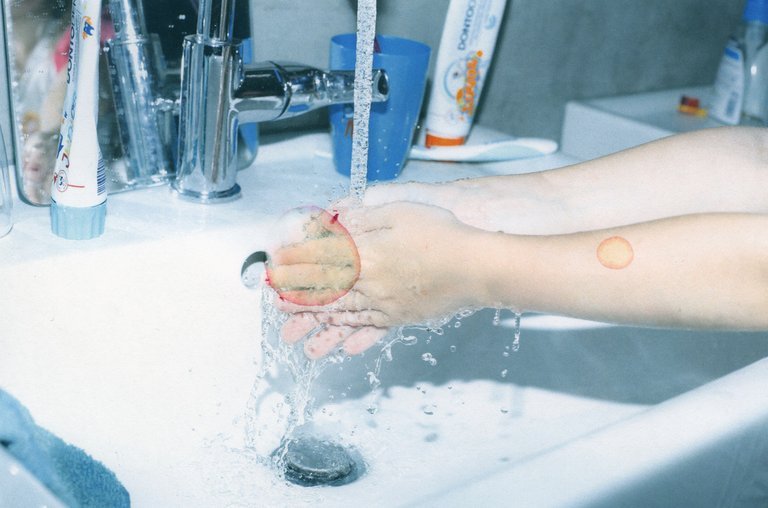Protection from infections
We can all help fight against resistant germs. Good hygiene keeps us healthy, and it protects us and those around us from dangerous infections. Want to know what to do, and what not to do? Here are our tips.

Washing hands
When? When your hands are visibly dirty. Before you eat, and after you use the bathroom. This is one of the most important steps you can take in fighting against resistant germs.
How? Wash your hands thoroughly for 20 to 30 seconds. Start with a good amount of soap in the palm of your hand, and rub your hands together with the palms facing each other. Then rub your left palm over your right knuckles and vice versa. After that, rub your hands palm to palm again with your fingers interlocked. After this, hold your right thumb in your left hand and clean it in a rotational motion, and vice versa. Finally, wash the backs of your hands against each other and then the front, and then rinse your hands with water. Dry your hands with a paper towel. They are now clean. Be careful to turn the water off using the paper towel, and not with your bare hands – otherwise they could be contaminated with new germs.
Amount of alcohol hand rub used in hospitals. Learn more
Hand disinfection
When? When you can’t clearly see the dirt on your hands. However, be aware that the benefits of disinfecting your hands are disputed, especially when disinfecting them outside of a hospital setting. It’s possible that excessive use of disinfectant can lead to more resistant germs.
How? Clean your hands with hand disinfectant for 40 seconds to a minute. Carefully wash the palms and the backs of your hands, then interlock them and wash your thumb and knuckles as described above.
Tips for hygiene when cooking
Raw meat can contaminate your meal with resistant germs. Germs can also pass from raw meat to other foods – this is called cross-contamination, and it’s why you should wash your hands after touching raw meat. If you use a knife to cut up raw meat you should use a different knife for cutting up other food afterwards. The Bundesinstitut für Risikobewertung (BfR) says that contact of raw meat with other foods should be avoided throughout the whole food chain: from when you shop, as you take the food home, when you store the food and when you prepare it.
The temperature that you keep the food at is also important. It needs to be cold enough while it’s being stored, and sufficiently heated when it’s cooked. Meat must reach a temperature of at least 70 degrees for two minutes during cooking. Your fridge temperature should be below 10 degrees.
If you have any cuts or open wounds on your hands it’s very important not to touch raw meat, because germs could get into your blood through the cuts. Be aware that bacteria are sometimes present in the water that forms when frozen meat thaws.
Behaviour in the hospital room
Your hands have to be clean before you enter the hospital room. You should also wash your hands immediately after leaving the room., to avoid spreading germs from one room to the rest of the hospital. Doctors and nurses should also wash their hands before and after treating each patient. It’s also important that the patients’ surroundings are only touched with clean hands. When it comes to tasks that involve contact with bodily fluids, like blood and saliva, hygiene is even more important. Hands must be cleaned immediately before and after any contact with bodily fluids.
Long fingernails, or false fingernails, are a perfect breeding space for bacteria. Jewellery like rings or bracelets also constitute a major risk. This is why they should be taken off while washing your hands, and should not be put on again for the duration of your visit.
How to deal with hospitalised relatives who are infected with MRSA
Let the nursing staff know that you’re visiting. This means they can work to prevent further distribution of germs in the hospital.
Put on protective clothing before entering the hospital room. It should include gloves, a protective gown and a face mask.
Avoid touching the patient: MRSA means no hugs and kisses. Don’t sit on the bed of your friend or relative and don’t touch things like food trays. Open wounds and skin lesions should be covered by patches.
When leaving the room, dispose of the protective clothing in one of the containers provided. You should never leave the room and wander around the hospital wearing the protective clothing, not even to quickly use the toilet or get a coffee.
Don’t forget to thoroughly disinfect your hands after your visit.
